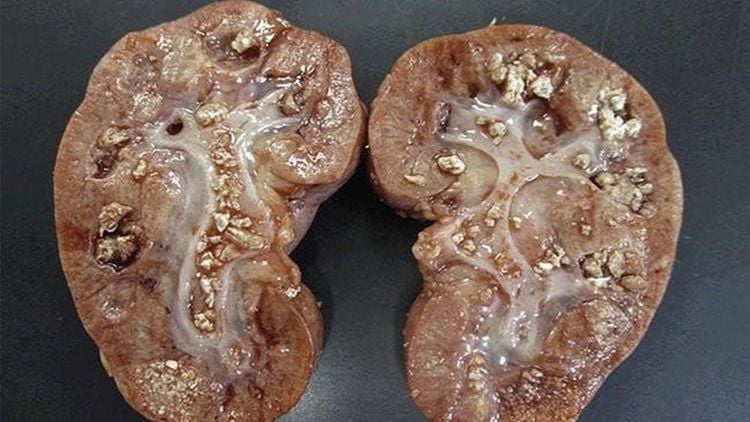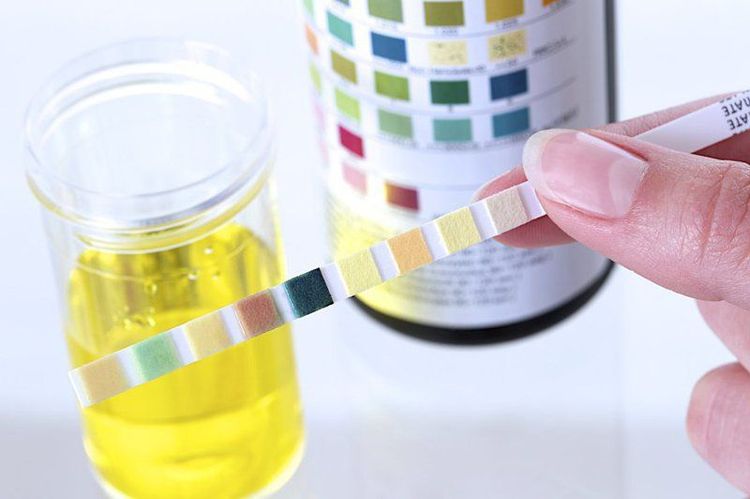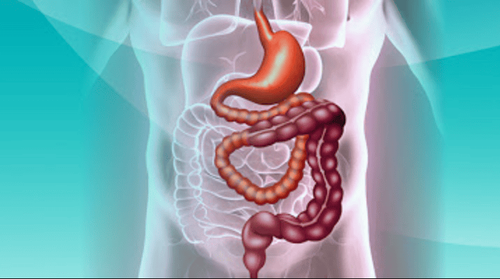This is an automatically translated article.
Painful urination is a symptom that causes pain and discomfort for patients when urinating. Determining the cause of painful urination in men and women will help prevent and treat the disease more effectively.
1. What is dysuria?
Painful urination is a symptom of pain, burning, discomfort when urinating. The pain may originate in the bladder, perineum, or urethra. The urethra is the tube that carries urine outside the body. In men, the perineum is the area between the scrotum and the anus. In women, the perineum is the area between the anus and the opening of the vagina.
Painful urination is a fairly common phenomenon in both women and men. However, not all patients have a clear understanding of the causes and effective prevention of this condition.
2. Causes of painful urination in women and men
2.1 Causes of painful urination symptoms in women Typical causes of painful urination in women are:
Urinary tract infections: The size of a woman's urethra is very short, only 1⁄3 of that of a man. . Besides, the female urethra is very close to the anus, creating favorable conditions for bacteria to easily penetrate and cause infection. When you have a urinary tract infection, you will feel sharp pain, burning when urinating, there may be discharge from the urethra; Vaginitis: Painful urination in women can be a warning sign of a yeast infection. This disease causes itching inside and outside the vagina, appearance of discharge in the form of peas, damaged mucosa causing ulcers, painful urination; Gonorrhea: After being infected with gonorrhea bacteria from 3 to 5 days, women have symptoms of painful urination, frequent urination, vaginal discharge of pus, abnormal discharge,...; Constipation: When constipation lasts for a long time (due to the habit of lazy to eat green vegetables, drink less water,...) it will put pressure on the bladder, leading to painful urination; Menopause: When reaching the age of menopause, the production of the hormone estrogen will be drastically reduced, changing the pH of the vagina, disturbing the balance of yeast and bacteria in the vagina, increasing the risk of urinary tract infections. urine. This is a common cause of painful urination in women; Diabetes: When blood sugar is high, excess sugar is excreted in the urine. This has created an opportunity for bacteria to grow, causing urinary tract infections. Besides, diabetics often have weakened immune systems, so bacteria that cause infections also have the opportunity to thrive, causing painful symptoms, discomfort when urinating; Holding urine: According to some scientific studies, holding urine for 6 hours or more can increase the risk of painful urination because at this time, pathogenic bacteria will enter the bladder. This is the reason why women should not hold their urine for too long to avoid painful urination; Kidney stones: Kidney stones can cause urinary tract infections by creating conditions for bacteria to multiply and grow. Therefore, when there are symptoms of painful urination accompanied by back pain, women should go to a kidney doctor to detect and thoroughly treat kidney stones;

Nguyên nhân gây tiểu buốt có thể do bệnh sỏi thận gây ra
Urethritis: The male urethra is a long tube, connecting from the bladder to the urethra to make urine. responsible for the transport of urine and seminal fluid. When the urethral canal is inflamed, the inflammation and swelling will narrow the urethral circumference, causing the patient to have painful urination and uncomfortable urination; Cystitis: This is an acute infection caused by bacteria in the bladder, has a high incidence, and is easy to recur if not treated definitively. Patients with cystitis have symptoms of painful urination, frequent urination, cloudy, foul-smelling urine, blood in the urine, fatigue, pain in the genitals, pain on both sides of the waist. ..; Pyelonephritis: An infection of the kidneys (mainly as a complication of a urinary tract infection). Pyelonephritis causes painful urination, pain when urinating, burning in the genitals when urinating, cloudy urine, bad smell, frequent urination, loss of appetite, body fatigue and weakness; Prostatitis: A disease caused by gram-negative bacteria of the gastrointestinal tract and urinary tract. Typical manifestations of the disease are painful urination, frequent urination; Prostate fibroid: Also known as prostate enlargement, is a condition in which the prostate gland enlarges, compressing the urethral canal and bladder, causing many symptoms of urinary tract disorders (including painful urination). This is a common disease in middle-aged men; Urinary system stones: Including kidney stones, bladder stones, ureteral stones, urethral stones. Causes of urinary stones include mineral salts dissolved in the urine that are deposited, forming stones. Symptoms of urinary stones include: Dull or intermittent pain in the waist, painful urination, acute urinary retention, cloudy urine, intermittent urination, blood in urine,...; Prostate cancer: A condition in which malignant cells grow uncontrollably, gradually forming tumors in the prostate gland, compressing the urethra and bladder. Symptoms of the disease include painful urination, urinary frequency, difficulty urinating, urinary retention, urinary frequency, urinary incontinence, urine with blood,...; Gonorrhea: The cause of painful urination in men can be due to gonorrhea. This is a sexually transmitted disease that can affect both men and women. The patient has symptoms of painful urination, burning; white, yellow, or green discharge from the penis; testicle swelling, pain,... 2.3 Other causes Some other causes of painful urination include: Chlamydia, side effects of some drugs (eg cancer drugs, birth control pills, sanitizing solutions). birth,...), genital herpes, sexually active, recent urinary tract procedure, allergy to soaps or personal care products, urethral stricture, fallopian tube inflammation , stress or psychological pressure,...
3. Is it dangerous to urinate in men and women?
People with painful urination often feel uncomfortable when urinating, impairing physiological health, reducing self-confidence, causing apprehension when close to a partner,... In the long term, this condition will affect large to husband and wife activities, easy to cause emotional damage. Besides, the phenomenon of urination can be a symptom of many dangerous diseases. In addition, this condition also carries many potential risks of unpredictable complications, even causing infertility, infertility or life-threatening to the patient.
Therefore, when having painful urination, frequent urination, the patient should go to the doctor for timely treatment.
4. Diagnosing dysuria in men and women
First, the doctor will take a look at the patient's medical history, ask questions about his overall health, and previous episodes of painful urination. The doctor will also ask the patient about the frequency of urination, the history of sexual intercourse, etc. Depending on the history information, the doctor will designate an appropriate test method for each patient.
Specifically, the doctor will ask to take a urine sample and then use a urine test strip to check and find the cause of painful urination. This method helps detect bacteria and blood (common in patients with urinary tract infections). The urine sample is then sent to a laboratory to be examined under a microscope to help determine the cause of the disease.
After being examined and diagnosed, the doctor will prescribe the appropriate treatment for the patient.

Một số xét nghiệm có thể giúp bác sĩ tìm ra nguyên nhân gây tiểu buốt
5. Measures to prevent and limit the progression of dysuria
Some effective measures to prevent and limit the progression of painful urination include:
Limit the use of alcohol, beer and other stimulants, spicy foods, carbonated soft drinks, ... because they have can cause bladder irritation; Have safe sex, live faithfully to avoid the risk of social diseases; Moderate husband and wife activities so that the genital organs have plenty of time to rest; Adding green vegetables, succulent fruits such as oranges, grapefruits, watermelons,... to the daily menu; Avoid highly acidic foods to give the bladder time to recover; Drink enough water (about 8-10 glasses of water/day) but avoid drinking water before going to bed at night to avoid waking up in the middle of the night because of the need to urinate; Do not hold urine, should urinate whenever you want to urinate. It is best to create a habit of urinating at fixed times of the day; Clean and correct genital hygiene, especially before and after sexual intercourse; Exercise regularly and regularly to strengthen the body's resistance to disease-causing bacteria. There are many causes of painful urination in men and women. This condition can lead to dangerous diseases, causing many serious consequences if not detected and treated promptly. Therefore, to ensure health and avoid complications, patients should visit a doctor as soon as there are abnormal signs in the urinary tract.
Please dial HOTLINE for more information or register for an appointment HERE. Download MyVinmec app to make appointments faster and to manage your bookings easily.













